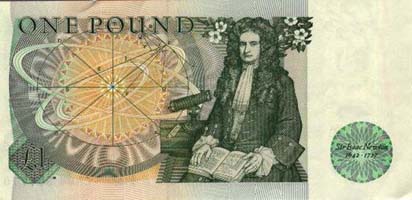Sir Isaac Newton (Fellow of the Royal Society) (4 January 1643 - 31 March 1727 [OS: 25 December 1642 - 20 March 1726]) was an English physicist, mathematician, astronomer, natural philosopher, alchemist, and theologian who is considered by many scholars and members of the general public to be one of the most influential men in human history. His 1687 publication of the Philosophiæ Naturalis Principia Mathematica (usually called the Principia) is considered to be among the most influential books in the history of science, laying the groundwork for most of classical mechanics. In this work, Newton described universal gravitation and the three laws of motion which dominated the scientific view of the physical universe for the next three centuries. Newton showed that the motions of objects on Earthand of celestial bodies are governed by the same set of natural laws by demonstrating the consistency between Kepler's laws of planetary motion and his theory of gravitation, thus removing the last doubts about heliocentrism and advancing the scientific revolution.
Newton also built the first practical reflecting telescope and developed a theory of colourbased on the observation that a prism decomposes white light into the many colours that form the visible spectrum. He also formulated an empirical law of cooling and studied thespeed of sound.
In mathematics, Newton shares the credit with Gottfried Leibniz for the development of the differential and integral calculus. He also demonstrated the generalised binomial theorem, developed the so-called "Newton's method" for approximating the roots of a function, and contributed to the study of power series.
Newton remains uniquely influential to scientists, as demonstrated by a 2005 survey of members of Britain's Royal Society asking who had the greater effect on the history of science and had the greater contribution to humankind, Newton or Albert Einstein. Royal Society scientists deemed Newton to have made the greater overall contribution on both.
Newton was also highly religious, though an unorthodox Christian, writing more on Biblical hermeneutics and occult studies than the natural science for which he is remembered today. In spite of this, The 100 by Michael H. Hart ranks Newton as the second most influential person in history (below Muhammad and above Jesus).

